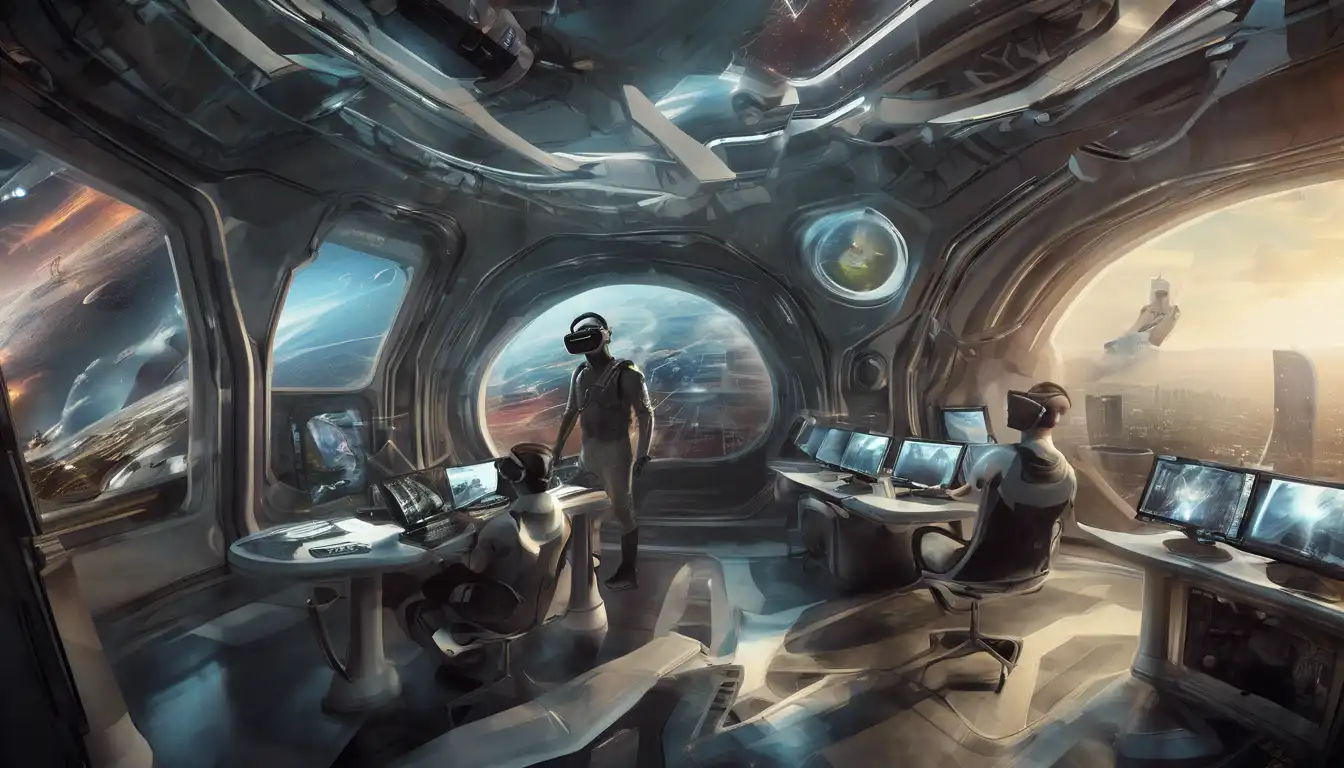Introduction to Virtual Reality
Virtual Reality (VR) is rapidly becoming one of the most exciting areas in technology today. With its ability to immerse users in a completely digital environment, VR is setting the stage for a revolution in how we interact with digital content. From gaming and entertainment to education and healthcare, the potential applications of VR are vast and varied.
The Evolution of Virtual Reality
The concept of VR isn't new, but recent advancements in technology have made it more accessible and realistic than ever before. Early attempts at VR were limited by technology, but today's VR headsets offer high-resolution displays, precise motion tracking, and immersive audio, creating a truly believable virtual world.
Applications of Virtual Reality
VR technology is being adopted across a wide range of industries. In the gaming industry, VR offers players an unprecedented level of immersion. In education, VR can transport students to historical sites or simulate complex scientific phenomena. Healthcare professionals are using VR for everything from surgical training to patient rehabilitation.
Gaming and Entertainment
The gaming and entertainment sectors have been among the first to embrace VR, offering users new ways to experience content. From virtual concerts to immersive video games, VR is changing the way we think about entertainment.
Education and Training
VR has the potential to transform education by providing immersive learning experiences that were previously impossible. Students can explore ancient civilizations, dissect virtual frogs, or even practice public speaking in a virtual environment.
Healthcare Innovations
In healthcare, VR is being used for pain management, physical therapy, and even to treat psychological conditions like PTSD. The ability to simulate real-life scenarios in a controlled environment is proving invaluable for both patients and practitioners.
The Future of Virtual Reality
As VR technology continues to evolve, we can expect to see even more innovative applications. With the development of more affordable and user-friendly VR devices, the technology is set to become a staple in households and businesses alike. The integration of VR with other technologies, such as artificial intelligence and the Internet of Things, promises to unlock even more possibilities.
Conclusion
Virtual Reality represents the next frontier in tech, offering endless possibilities for innovation and transformation across industries. As we continue to explore the potential of VR, it's clear that this technology will play a pivotal role in shaping the future of digital interaction. Whether for entertainment, education, or healthcare, VR is poised to change the way we experience the world around us.
